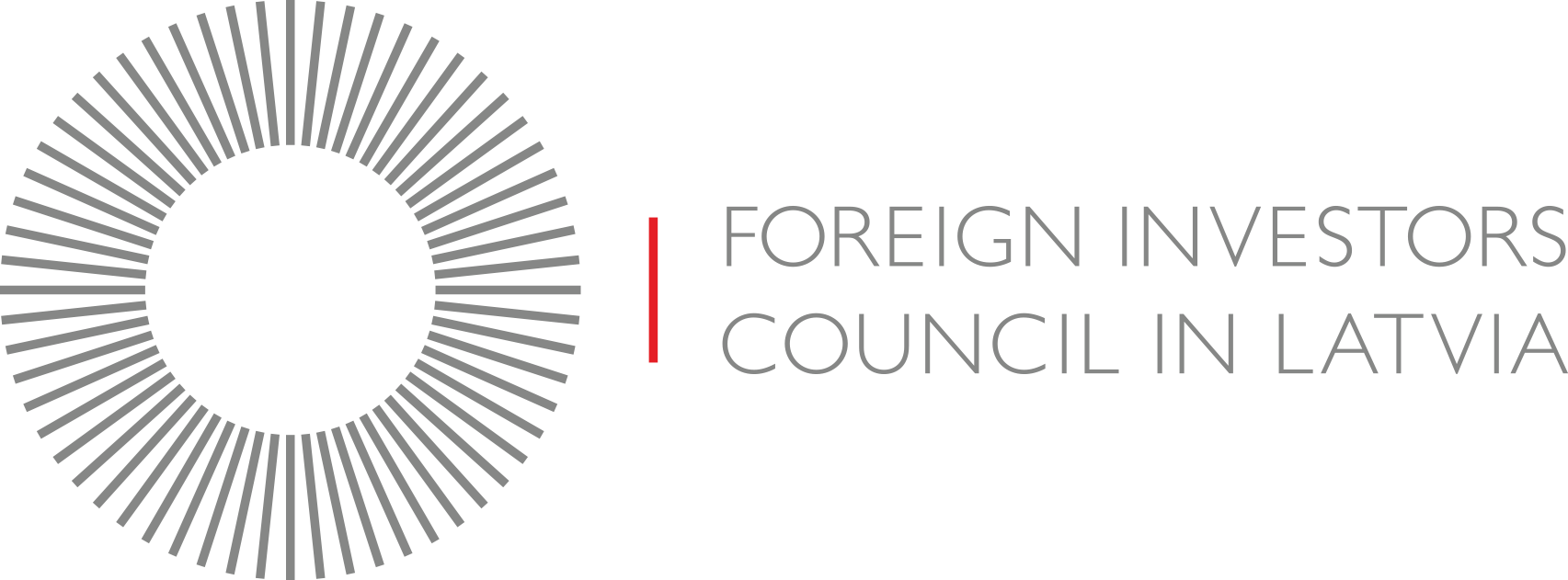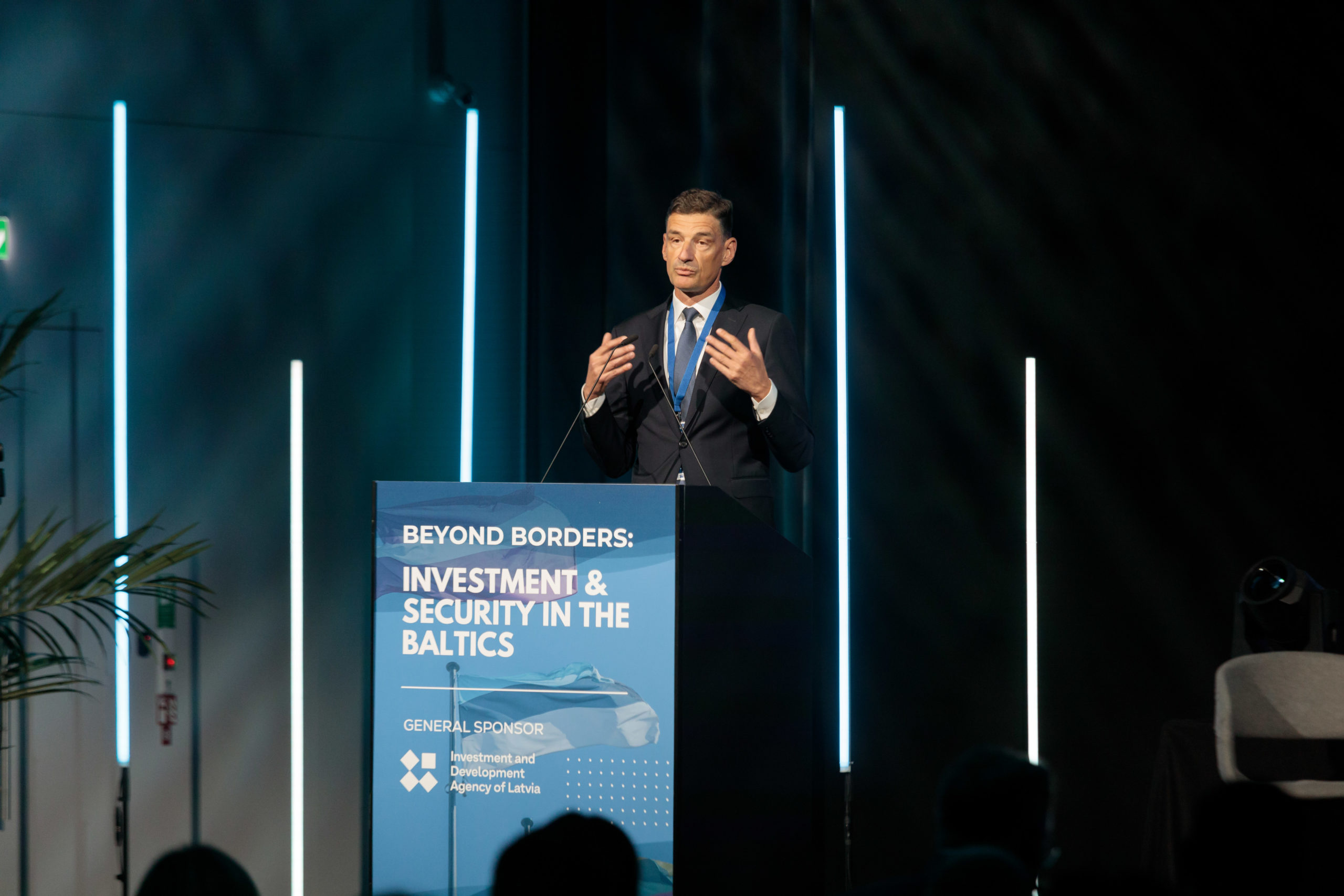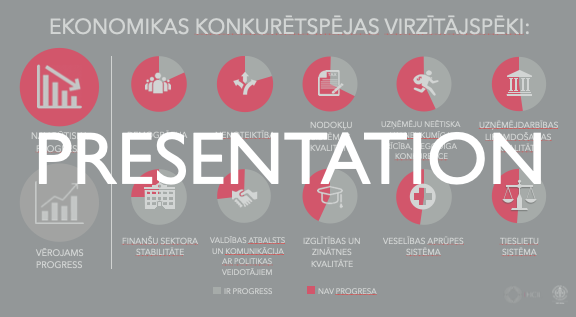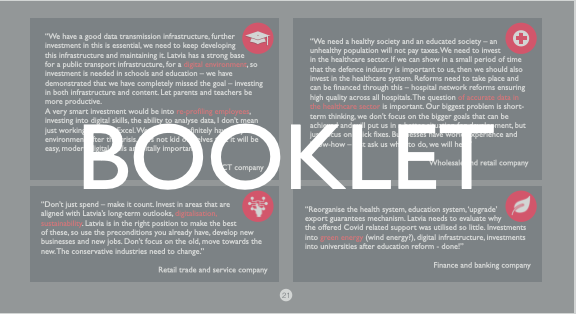The foreign investors and Baltic government leaders meeting in Riga confirmed that, despite ongoing geopolitical and economic pressures, Estonia, Latvia and Lithuania remain attractive to the foreign investors and are taking concrete steps to improve the region’s investment climate. The high-level “Beyond Borders: Investment & Security in the Baltics” conference, organised by the Foreign Investors Council in Latvia (FICIL) on May 26, brought together officials from all three countries, as well as, key EU and international partners to discuss joint research findings and policy initiatives.
FICIL Chairperson of the Board, Reinhold Schneider, emphasized: “The Baltics have shown remarkable resilience and highlighted that regional unity is not just a principle—it’s a strategic asset. By working more closely together, Estonia, Latvia, and Lithuania can create an even more investment-attractive environment that looks beyond today’s challenges.”
During the event, the new FICIL Sentiment Index research results were presented, which pointed to improvements of the investment climate in Lithuania and Latvia, as well as, highlighted a belief in the great potential of Estonia. The investment attractiveness of Latvia, for example, improved notably from 1.9 to 3 (on a 5-point scale), with foreign investors praising government efforts in defence and stability, though continued efforts remain essential. The Latvian Prime Minister, Evika Siliņa, emphasized Latvia’s stability and attractiveness to investors, stating: “Latvia is a safe and stable place to invest. We value long-term partnerships as much as fresh investment. At the end of 2024, foreign direct investment reached more than 26 billion euros – 65.4% of our GDP. These are not just numbers – they show that Latvia is delivering results and building confidence. We’re reducing bureaucracy, investing in security, and developing our digital and AI sectors to make Latvia even more competitive”.
In addition, the latest Sentiment Index data show that current foreign investors are generally optimistic: roughly half of respondents in Latvia and Estonia (and about 38% in Lithuania) intend to boost their regional investment. Stakeholders attributed this confidence to the Baltics’ strong fundamentals – stable democratic institutions, sound macroeconomic policies and open markets – as well as advanced infrastructure. In particular, the region’s digital transformation and innovation clusters were highlighted. The Chairperson of the Foreign Investors Council in Estonia, Peter Thomsen, noted: “Foreign investors see the Baltics as a region of strong potential, but there’s a need for more efficient governance to unlock growth. The key to attracting investment to the region lies in fostering innovation, boosting human capital development and investing in defence”.
The CEO of German-Baltic Chamber of Commerce in Estonia, Latvia and Lithuania (AHK), Florian Schröder, presented new business-survey findings and commented: “The Baltics may be three markets, but they speak with one economic voice. Our latest survey confirms that businesses increasingly recognize the region’s synergy potential—especially in areas like digitalization, green energy, and infrastructure. The Baltics should sell themselves better, as they are offering great investment opportunities, yet do not manage to indicate these opportunities”. Three panel sessions then examined investment trends in each country, government initiatives to stimulate foreign investment, and the European/international support needed to address the Baltics’ security and economic challenges.
The forum combined data presentations with policy debate, which pointed to concrete developments strengthening Baltic resilience:
- Energy independence: In 2025, the Baltic states synchronized their power grids with Continental Europe, ending reliance on the Soviet-era BRELL system.
- Defence and industry: Latvia has begun full-cycle domestic production of Patria armoured vehicles, a move thatboth enhances national security and builds high-tech industrial capacity.
- Digital and fintech innovation: The Baltics remain leaders in e‑governance and fintech, with Estonia’s extensive online public services and a thriving Lithuanian tech
Speakers also emphasized the need for closer cooperation between the Baltic States and the EU. Given shared geopolitical challenges, meaning Russia’s war in Ukraine, they highlighted that greater collaboration will not only boost investor confidence, but also signal solidarity within Europe. European Commissioner for Economy and Productivity, Implementation and Simplification, Valdis Dombrovskis, stressed the importance of EU support for the Baltic States, particularly in strengthening regional security and fostering innovation. “Today’s conference shows that Baltics have the same priorities – defence and competitiveness. The Baltic States should continue to stay at the forefront of the defence and security agenda within the EU, and our wish for the Baltics is to project more of our strengths to the world, which will make Baltics more attractive”. Andre Küüsvek, President and CEO of the Nordic Investment Bank, pointed out: “Stronger countries make stronger regions, and stronger regions create a stronger EU”. Lastly, Ieva Jāgere, Director General of the Latvian Investment and Development Agency pointed out: “At LIAA we stay committed to make Latvia and Baltics in general attractive to the foreign investors”.
The Baltic business community and governments concluded that sustained progress will require ongoing cooperation, innovation and clear policies. With each country learning from its neighbours and engaging EU and international partners, the region can turn challenges into opportunities and become increasingly attractive for foreign investment.






